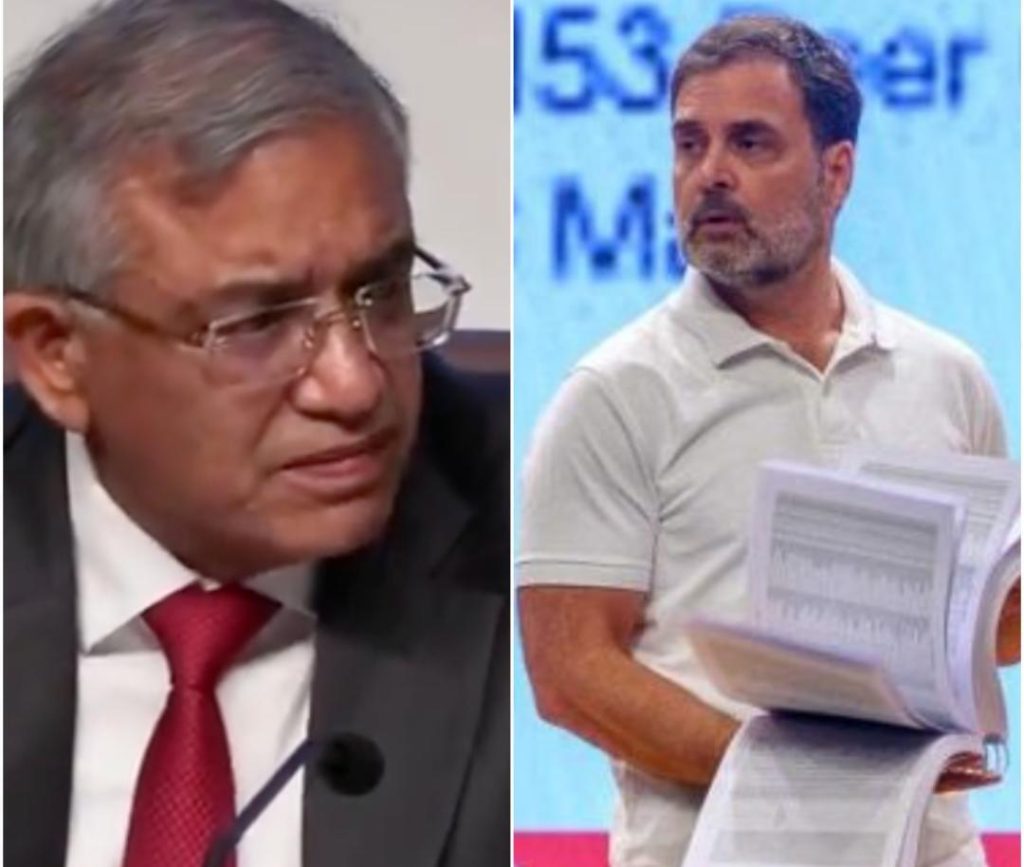
Vote Chori’ Phrase an Insult; Should We Share CCTV Footage of Mothers & Sisters Voting?: EC
The ongoing political debate in India has reached a new low with the use of derogatory terms to describe the electoral process. The latest controversy centers around the phrase “vote chori” (vote theft), which has been used by Congress leader Rahul Gandhi to claim that elections are rigged. However, the Chief Election Commissioner (CEC) Gyanesh Kumar has strongly criticized the term, calling it an insult to the Constitution.
In a recent statement, Kumar emphasized that the Election Commission (EC) will not tolerate any language that undermines the sanctity of the electoral process. He specifically targeted the “vote chori” phrase, saying that it is an attempt to sully the reputation of the EC and the voters.
The CEC’s remarks came in response to a request from some quarters to release surveillance footage from polling booths to clear any doubts about the integrity of the electoral process. However, Kumar firmly rejected the demand, citing concerns about voter privacy.
“When people go to vote, it is a private affair,” Kumar said. “Should the Election Commission share the CCTV videos of any voter, including their mothers, daughters-in-law? It is not possible for us to do so.”
Kumar’s statement has sparked a heated debate about the role of technology in ensuring the integrity of elections. While some argue that releasing surveillance footage would help to build trust in the electoral process, others believe that it would compromise the privacy of voters.
The EC has taken several measures to ensure the integrity of elections, including the installation of CCTV cameras at polling booths. However, the Commission has emphasized that the footage is only meant to be used for monitoring purposes and not for public consumption.
The controversy surrounding the “vote chori” phrase and the demand for releasing surveillance footage highlights the need for responsible political discourse. Political leaders must refrain from using derogatory language that undermines the democratic process and instead focus on engaging with voters in a constructive manner.
The EC’s stand on releasing surveillance footage is also justified. Voters have a right to privacy, and the EC must ensure that their personal data is protected. Releasing CCTV footage without the consent of voters would be a violation of their privacy and could have serious consequences.
In conclusion, the “vote chori” phrase is an insult to the Constitution and the electoral process. Political leaders must refrain from using such language, and instead focus on engaging with voters in a constructive manner. The EC’s decision to reject demands for releasing surveillance footage is also justified, as it prioritizes voter privacy and ensures the integrity of the electoral process.






